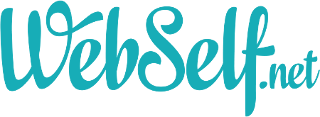SEO
SEO is optimizing the content and the structure of a website to increase its ranking when searching specific words on search engines. SEO also regroups the rankings of search engines as well as different web strategies to properly meet the search engine ranking criteria.
Code
The source code is a set of instructions written in a high-level computer programming language to obtain a program or a web page.
Web host
A web host is a data storage service company that is ‘hosting’ websites on its company’s servers. The main activity of the web host is to install its servers, to secure them, to keep them up to date by installing the security updates to avoid malicious attacks and to repair them in the case of breakdown.
Server
A server is a computer holding the role of a computer server on which software operates, often linked to a set of servers allowing the operation of a web application.
Bandwidth
The bandwidth corresponds to the capacity allocated to the transfer of data allowing the display of your site to the visitors. The larger it is, the more visitors on your website you can have.
Disk space
This is the space allocated for storing your data on a server's disks. Increasing your disk space will allow you to download a larger amount of files (images, videos).
Spam
Spam is unsolicited electronic communication, primarily via email. In general, these are sent for advertising purposes.
Error 404
Error 404 is a code error in the HTTP1 protocol. This code is returned by an HTTP server to indicate that the requested resource (usually a web page) does not exist. Some web browsers display the message "404 File Not Found" to the user.
Metadata
As part of a website and it's SEO, the Metadata is an HTML tag located in a web page to indicate the title, description, keywords related to that page. This data are useful for the SEO of those web pages on search engines like Google.
Search engine
A search engine is where you can find resources (web pages, images, video, files, etc.) associated with words, called keywords. There are websites dedicated to those searches, like Google, Bing and Yahoo! There are also search engines on a smaller scale on some websites. These only search the content of the website, unlike sites such as Google, who searches in the whole internet world.
These engines are web search tools made up of "robots", called bots or crawlers, who navigate the websites at regular intervals and automatically to discover new URL. They follow the hypertext links (which link the pages to each other) encountered on each page reached. Each identified page is then indexed in a database, accessible by keywords.
URLs
(Uniform Resource Locator), can be substituted by the term web address. The URL is used to put an ‘address’ to the Internet resources. The URL contains content, text, images, etc. It also contains a domain name. For example, the URL (or web address) of the WebSelf website's support page is https://support.webself.net/hc/en-us, which is the domain of the site/name of the page.
Domain name
The domain name is the address corresponding to your site on the internet. It is presented in the form www.DomainName.com or with another extension (.fr, .net, .org, etc ...). This is the readable address to which your site is available.
To be more technical, a domain name is a "mask" of an IP address. The purpose of a domain name is to remember and communicate easily the address of a set of servers (website, e-mail, FTP ...). For example, wikipedia.org is easier to remember than 91.198.174.2, which is its IP address.
Web browser
A web browser is designed to consult the web. This is the program on which you are when you visit a website. There are many browsers available on mobile or desktop computers: Mozilla FireFox, Internet Explorer, Google Chrome, Safari, Opera are all examples.
You are now a web PRO! Ready to start creating your free beautiful website?
